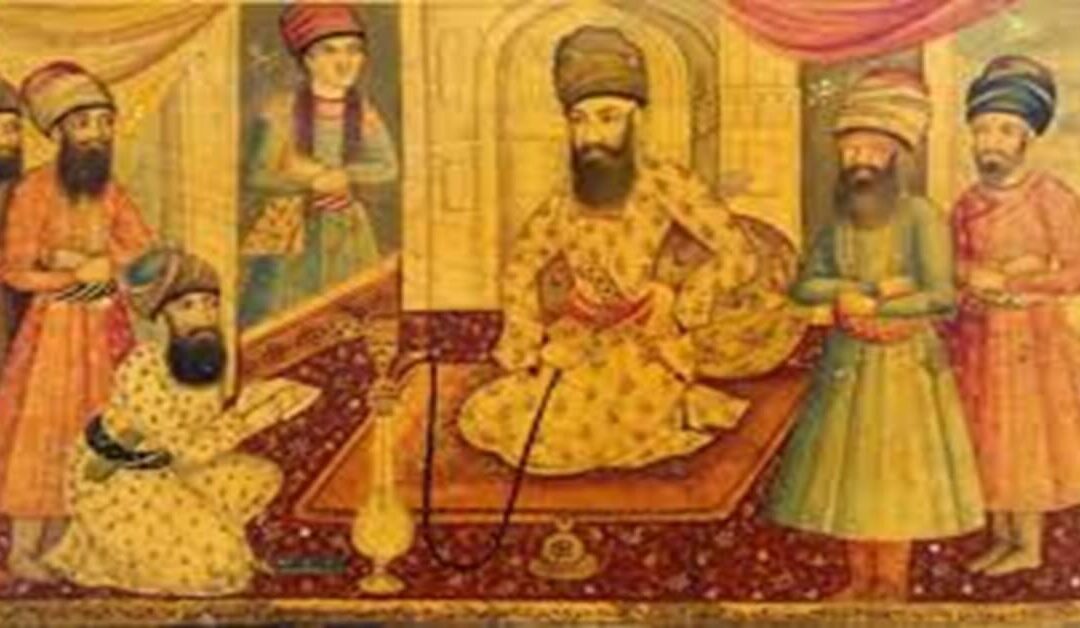
Religious Policy of Akbar
Introduction
Akbar, one of India’s greatest rulers, was known for his broadmindedness and visionary outlook. From his early years, he was influenced by liberal thinkers, such as his regent Bairam Khan, a Shia liberal Muslim. Akbar’s exposure to diverse scholars, religious ideologies, and his own innate curiosity led him to envision a synthesis of all religions. His revolutionary idea culminated in the founding of Din-i-Ilahi in 1582, a religion that sought to combine the best aspects of all faiths. Importantly, Akbar never imposed his beliefs on his subjects, reflecting his unparalleled tolerance and respect for diversity.
The Four Pillars of Akbar’s Religious Policy
Akbar’s religious policies were built on four foundational pillars:
1. Amity – Promoting harmonious relations among his subjects.
2. Equity – Ensuring fairness regardless of religion.
3. Kindness – Emphasizing compassion in governance.
4. Tolerance – Encouraging acceptance of all beliefs and practices.
These pillars made his administration unique and earned him the admiration of people across different faiths.
Factors Shaping Akbar’s Religious Policy
1. Influence of the Bhakti Movement
The 16th century was marked by the Bhakti movement and Sufi teachings, which advocated religious tolerance. Akbar, growing up amidst these liberal ideas, imbibed the ethos of inclusivity and coexistence.
2. His Broadminded Nature
Akbar’s innate liberalism was further nurtured by his regent Bairam Khan and tutor Abdul Latif, who were themselves open-minded thinkers. His mother, Hamida Banu, and his Hindu wives also contributed to his progressive outlook.
3. Interaction with Scholars
Akbar was profoundly influenced by liberal-minded scholars like Shaikh Mubarak and his sons, Faizi and Abul Fazl. Their intellectual debates and spiritual insights left a lasting impact on Akbar’s worldview.
4. Contact with Rajputs
Akbar’s alliances with Rajput rulers, including his marriage to Jodha Bai, deepened his understanding of Hindu culture and traditions, fostering mutual respect.
5. Independence from Orthodoxy
Breaking free from the orthodox Muslim priestly class, Akbar declared himself supreme in religious matters through the Mahzarnama decree in 1579. This step was pivotal in distancing the state from religious orthodoxy.
6. A Desire for Truth
Akbar’s spiritual quest led him to establish the Ibadat Khana in 1575, where he invited scholars from various religions for open discussions. These sessions strengthened his belief in Sulh-i-Kul—universal peace and harmony.
Key Measures Adopted by Akbar
1. Abolition of Discriminatory Taxes
* Abolished Jizya(tax on non-Muslims).
* Removed the pilgrim tax on Hindus.
2. Freedom of Worship
Akbar granted his subjects the freedom to practice their religion without fear.
3. Matrimonial Alliances
Akbar married Rajput princesses, forging political and cultural bonds between the Mughals and Hindus.
4. Inclusivity in Governance
Hindus held high positions in his administration, such as Todar Mal (Finance Minister) and Raja Man Singh.
5. Promotion of Hindu Culture
* Translated Hindu scriptures like the Ramayanaand Mahabharata into Persian.
* Encouraged temple construction and repair.
6. Social Reforms
* Banned Sati (widow immolation).
* Supported widow remarriage and discouraged forced conversions.
7. Founding Din-i-Ilahi
Akbar’s new religion combined elements of Hinduism, Islam, Zoroastrianism, and Christianity, promoting ethical living and mutual respect.
Significance of Akbar’s Policies
1. Strengthened His Empire
The cooperation of Hindus, the majority population, ensured the stability and expansion of Akbar’s empire.
2. Cultural Integration
By blending the cultural practices of Hindus and Muslims, Akbar fostered unity and harmony.
3. Encouraged Secularism
Akbar’s policies set an example of secular governance, emphasizing fairness and respect for all.
4. Social Awakening
His reforms created awareness about social evils like Sati and encouraged progressive practices.
Decoding Akbar’s Ibadat Khana
The Ibadat Khana (House of Worship), established in 1575 at Fatehpur Sikri, was a testament to Akbar’s curiosity and openness. Here, scholars from Hinduism, Islam, Christianity, Zoroastrianism, and other faiths gathered for interfaith discussions. These debates laid the foundation for Sulh-i-Kul and the eventual formation of Din-i-Ilahi.
Legacy of Akbar’s Religious Policy
Akbar’s inclusive vision went beyond politics. His ideas of unity, tolerance, and harmony resonate even today as a model for peaceful coexistence in a diverse society. By embracing the principle of Sulh-i-Kul (universal peace), Akbar showed the world the power of unity in diversity.
